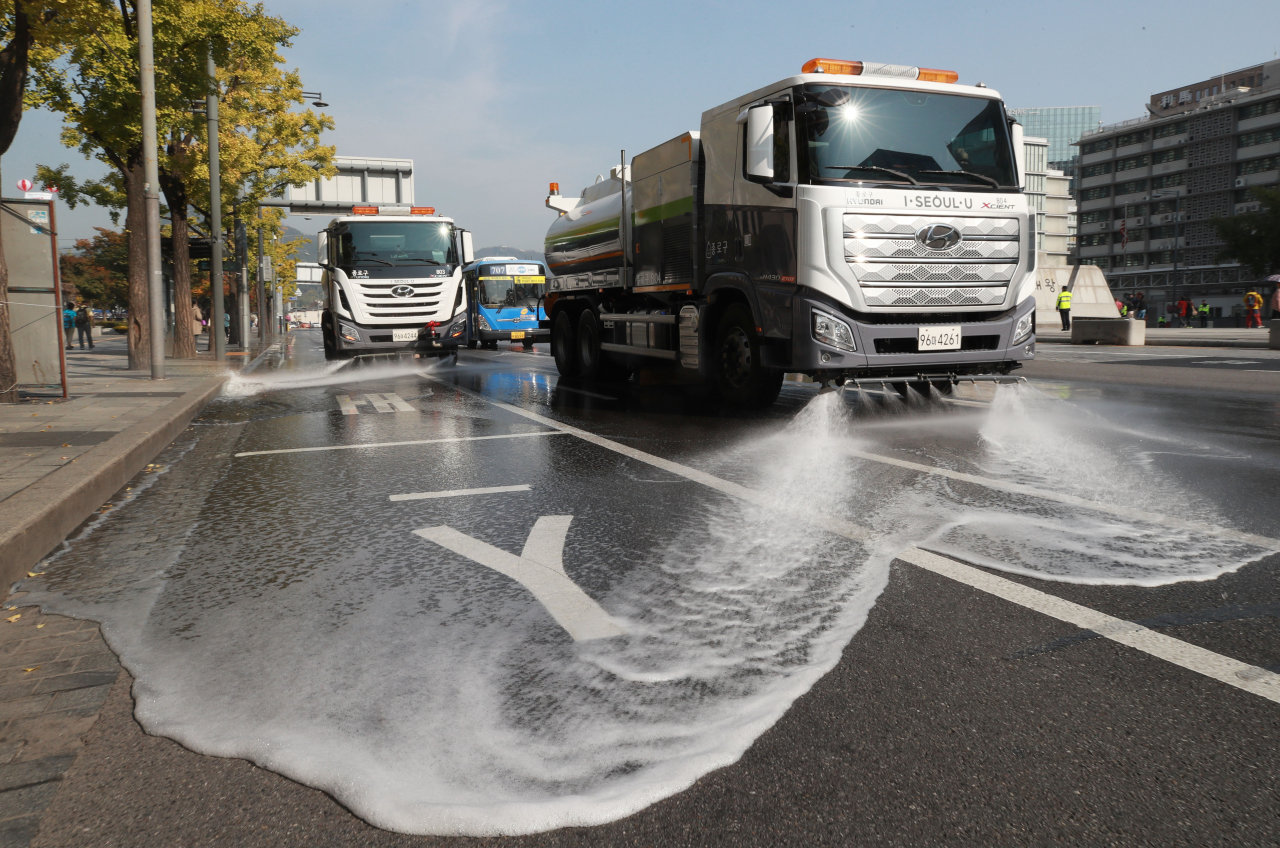South Korea is expected to see a high level of particulate pollution, leading the government to take preliminary anti-dust measures for the first time this autumn and launch a monthlong crackdown on diesel car emissions Monday.
Preliminary reduction measures -- proactive measures to prevent air pollution from getting worse the next day -- went into effect from 6 a.m. to 9 p.m. Monday in Seoul, Incheon and Gyeonggi Province as levels of PM2.5 -- ultrafine airborne particles smaller than 2.5 micrometers in diameter -- were expected to exceed 50 micrograms per cubic meter on Tuesday.
Preliminary reduction measures -- proactive measures to prevent air pollution from getting worse the next day -- went into effect from 6 a.m. to 9 p.m. Monday in Seoul, Incheon and Gyeonggi Province as levels of PM2.5 -- ultrafine airborne particles smaller than 2.5 micrometers in diameter -- were expected to exceed 50 micrograms per cubic meter on Tuesday.

As of 3 p.m. Monday, ultrafine dust levels stood at 24 micrograms per cubic meter in Seoul, 29 in Gyeonggi Province and 23 in Gyeonggi Province, according to Air Korea, with toxic pollutants forecast to flow into the country later in the day.
Preliminary measures are taken between 9 a.m. and 6 p.m. when the emergency reduction measures are expected to go into effect for a second consecutive day. Under the measures, work hours at construction sites in the public sector are reduced and civil servants must refrain from using their vehicles every other day. Driving days for these civil servants depend on whether the vehicle’s license plates end in an even or odd number.
Under the related law, all drivers must comply with the anti-dust measures. If not, they can face up to 2 million won ($1,696) in fines, the ministry said.
To combat the fine dust problem, which typically worsens in the winter season, the Ministry of Environment also launched a crackdown on vehicles producing more than the permissible levels of exhaust.
Seventeen provincial and city governments and the Korea Environment Corporation will enforce the measures at 530 locations across the country from Monday through Nov. 15. The crackdown mainly targets diesel cars, trucks and buses.
Typically, high levels of PM2.5 blanket Korea from autumn through spring as wind blows from west to east. Last year, the average level of ultrafine dust was at its highest in March at 34.2 micrograms per cubic meter. Pollutants traveling from China as well as domestic emissions from old diesel cars and coal-fired power plants are believed to be major contributors.
Korea enforces emergency reduction measures when the average concentration of PM2.5 exceeds 50 micrograms per cubic meter and is forecast to surpass that level for the next 24 hours.
Under the emergency measures, municipalities can ban old diesel cars from their streets and ask emissions-producing facilities to reduce their operating hours. They can also ask for the temporary closure or reduction of class hours at day care centers and schools, and flexible work hours at workplaces.
By Ock Hyun-ju (laeticia.ock@heraldcorp.com)
-
Articles by Ock Hyun-ju










![[Hello India] Hyundai Motor vows to boost 'clean mobility' in India](http://res.heraldm.com/phpwas/restmb_idxmake.php?idx=644&simg=/content/image/2024/04/25/20240425050672_0.jpg&u=)








